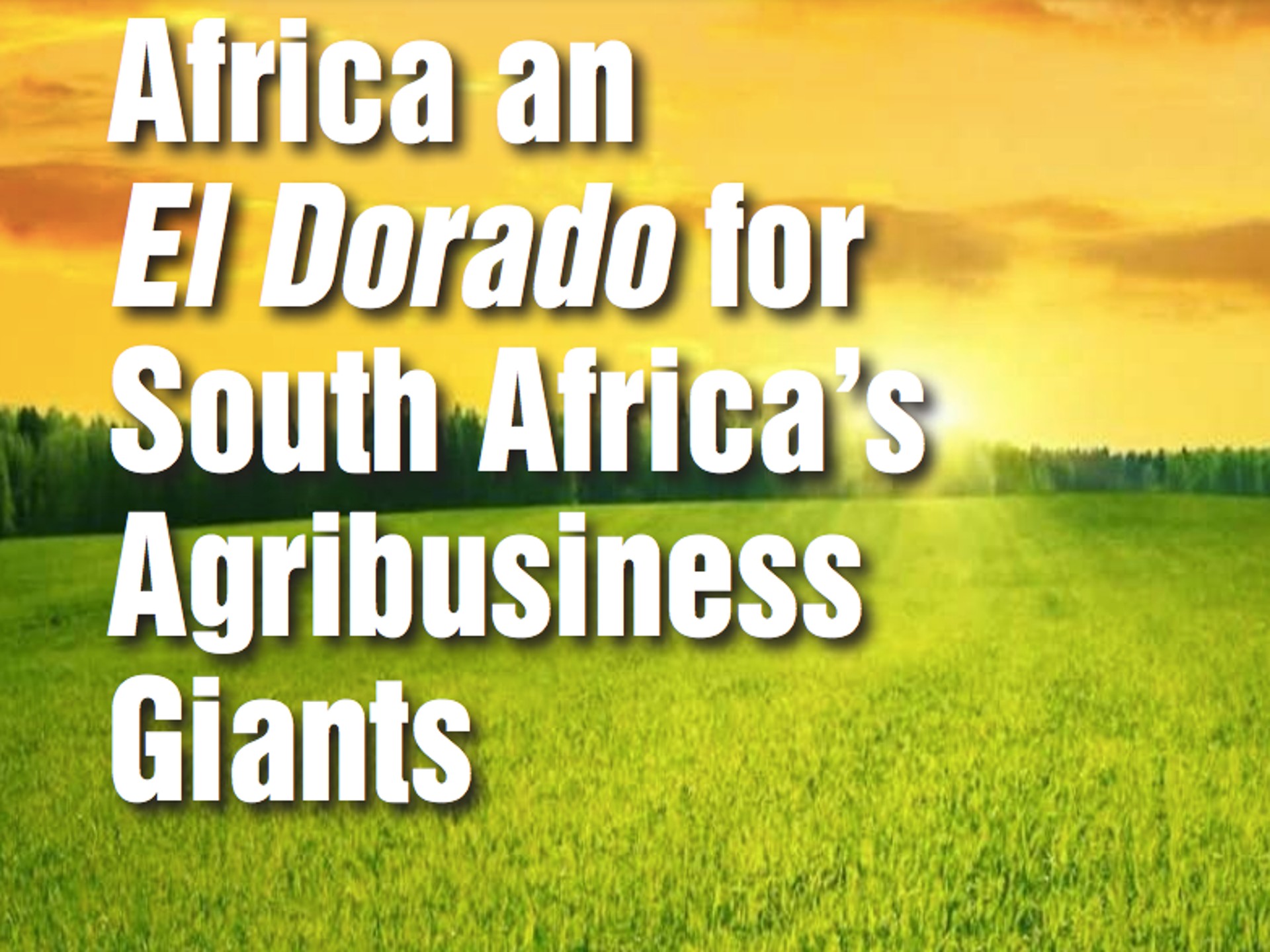Latest Resources

9 November 2015
Which way forward for Zambia’s smallholder farmers: Green Revolution input subsidies or agroecology?
In this report, we provide a critique of the Green Revolution Farmer Input Subsidy project in Zambia, looking at its impacts particularly for small holder farmers and their seed systems.

24 October 2015
Investments in the Beira Corridor in Mozambique: threats to farmers’ seed and food systems
The African Centre for Biodiversity (ACB) in partnership with the União Nacional de Camponeses (UNAC, National Peasants Union), and Kaleidoscopio has today released preliminary findings in a research project: ‘Agricultural investment activities in the Beira Corridor, Mozambique: Threats and opportunities for small-scale farmers.’ Joining Zimbabwe, Zambia and Malawi to the coast of Mozambique, the Beira […]

6 July 2015
GM and seed industry eye Africa’s lucrative cowpea seed markets: The political economy of cowpea ...
The African Centre for Biodiversity (ACB) has today released a new report titled, GM and seed industry eye Africa’s lucrative cowpea seed markets: The political economy of cowpea in Nigeria, Burkina Faso, Ghana and Malawi. The report shows a strong interest by the seed industry in commercialising cowpea seed production and distribution in West Africa, […]

11 June 2015
Cottoning onto the lie: GM cotton will harm not help small farmers in Africa
After five seasons of genetically modified (GM) cotton cultivation in Burkina Faso farmers are denouncing their contracts with Monsanto and cotton stakeholders are discussing compensation for losses incurred since 2008 due to low yields and low quality fibre. Many other African governments are poised to follow suit but should note how GM cotton has impoverished […]

12 May 2015
Grabbing Africa’s seeds: USAID, EU and Gates Foundation back agribusiness seed takeover
The latest salvo in the battle over Africa’s seed systems has been fired, writes Stephen Greenberg, with the Gates Foundation and USAID playing puppet-masters to Africa’s governments – now meeting in Addis Ababa – as they drive forward corporation-friendly seed regulations that exclude and marginalize the small farmers whose seeds and labour feed the continent. […]

4 May 2015
Gates and Monsanto’s Water Efficient Maize for Africa (WEMA) Project
In this report, the ACB interrogates the Gates Foundation and Monsanto’s Water Efficient Maize for Africa (WEMA) project and exposes it to be nothing more than corporate ‘green washing’, designed to ensnare small holder farmers into adopting hybrid and GM maize in order to benefit seed and agro-chemical companies.

17 March 2015
Nuanced rhetoric and the path to poverty: AGRA, small-scale farmers, and seed and soil fertility ...
The report indicates a well-coordinated effort by selected states especially the US and in the EU, philanthropic institutions like AGRA, multilateral institutions like the World Bank, donors and multinational corporations (MNCs) including Yara, Monsanto and Pioneer to construct a Green Revolution that aims to produce a layer of commercial surplus producers. This is an explicit […]

6 October 2014
Running to Stand Still: Small-Scale Farmers and the Green Revolution in Malawi
According to ACB lead researcher, Dr Stephen Greenberg, “small-scale farmers are using shockingly high levels of synthetic fertilisers at great financial costs to themselves and the public purse. Rising soil infertility is a feature of farming systems reliant on synthetic fertiliser. We found that farmers are increasingly adopting hybrid maize seed, encouraged by government subsidies […]

15 September 2014
The political economy of Africa’s burgeoning chemical fertiliser rush
The African Centre for Biosafety has today released an in-depth report, The Political Economy of Africa’s burgeoning chemical fertiliser rush, which looks at the role of fertiliser in the Green Revolution push in Africa, some of the key present and future fertiliser trends on the continent and the major players involved in this. The value […]

2 September 2014
Africa an El Dorado for South Africa’s Agribusiness Giants
South African agribusinesses are aggressively expanding into Africa in search of profits from a relatively untapped consumer market with rising income levels and to escape the country’s negative economic conditions. This paper traces this expansion and outlines the implications for Africa’s market structure, food security and food sovereignty movements, as well as exploring the potential […]
